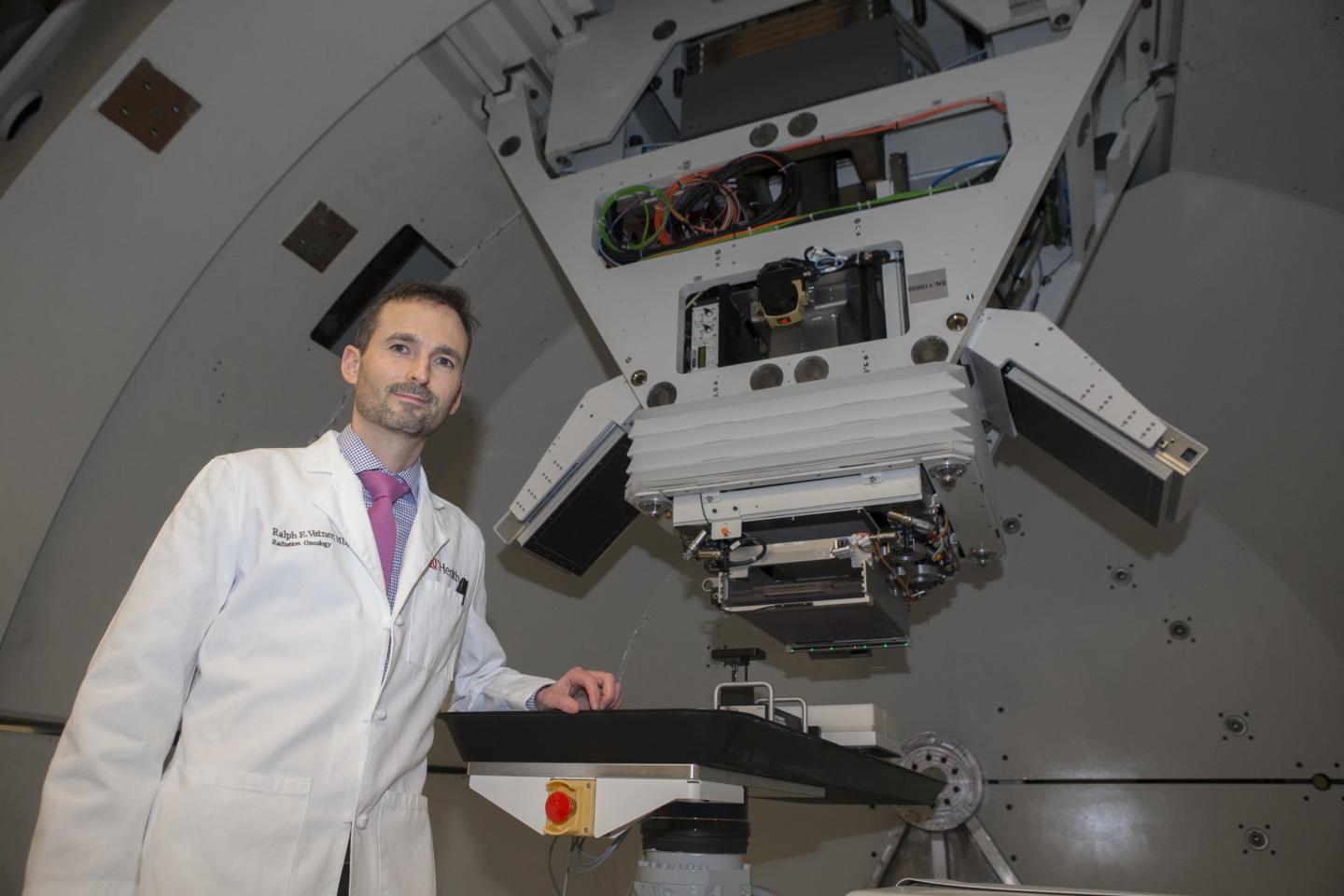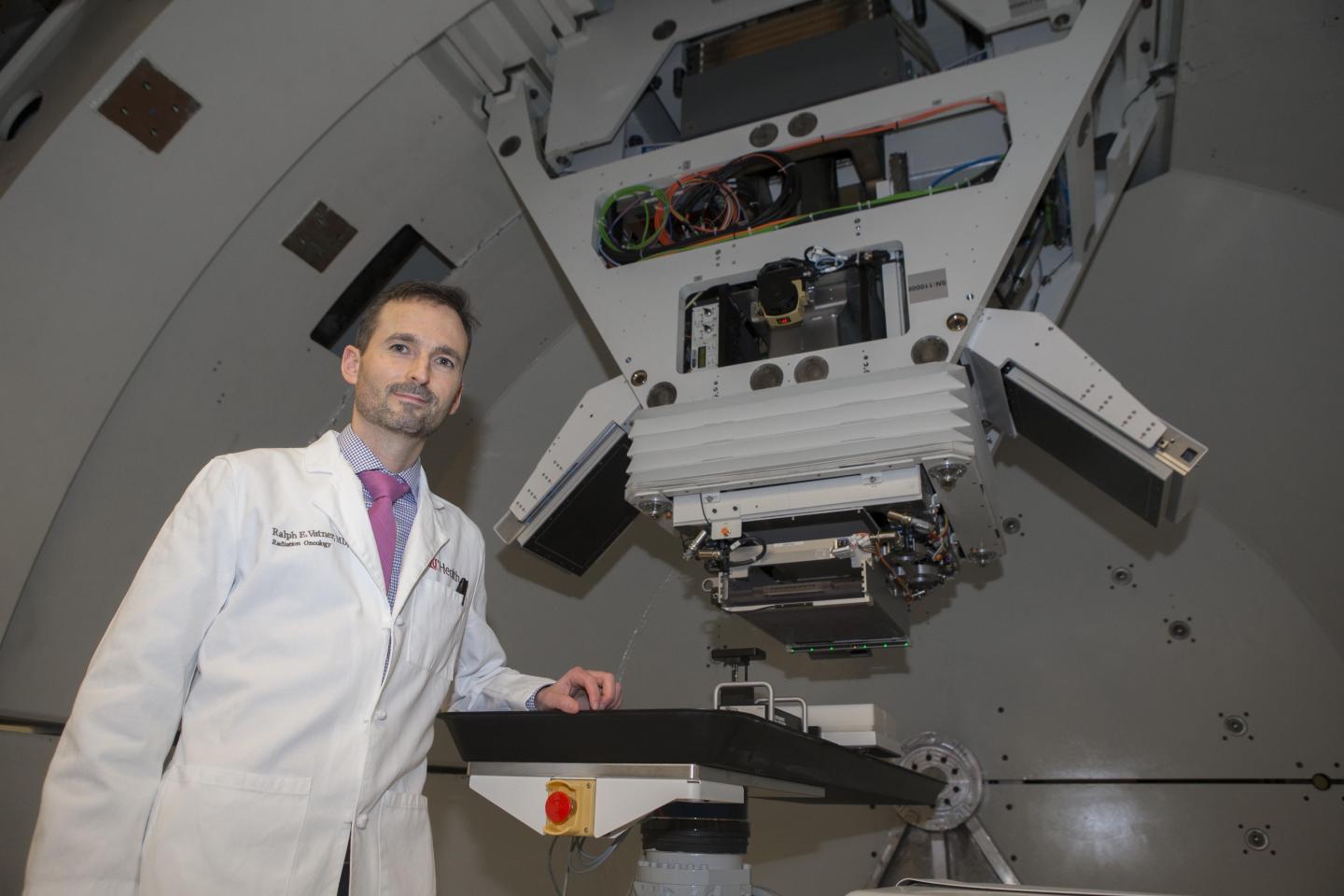
Credit: Joe Fuqua, University of Cincinnati
CINCINNATI–In a new study, University of Cincinnati (UC) researchers, in collaboration with Massachusetts General Hospital, have detailed the effect of radiation exposure on the development of hormone deficiency in pediatric and young adult patients treated for brain tumors.
These results, published in the Aug. 17, 2018 online edition of the Journal of Clinical Oncology, provide evidence that further supports minimizing the dose of radiotherapy to the hypothalamus and pituitary gland and will help predict the risk of hormonal complications for those being treated with radiotherapy for brain tumors.
The hypothalamus is a region of the forebrain that coordinates the activity of the pituitary gland, and together, they regulate many of the hormones in the body that control growth, metabolism, adrenal function and gonadal function.
"There isn't much data defining the dose response of radiation therapy to the hypothalamus and pituitary gland in pediatric and young adult patients with brain tumors," says Ralph Vatner, MD, PhD, assistant professor in the Department of Radiation Oncology and lead author on this study. "We examined the correlation between radiation therapy dosage to these brain structures and development of endocrine dysfunction in this population."
Vatner says dosimetric data–measurement, calculation and assessment of the ionizing radiation dose absorbed by the human body–and clinical information was collected from 222 children and young adults (younger than 26 years old) with brain tumors treated with proton radiotherapy on three prospective studies (2003 to 2016) coordinated by Massachusetts General Hospital.
Proton radiotherapy is a form of radiation treatment used for certain types of cancers and lymphomas. A major advantage over traditional forms of radiotherapy is its ability to deliver radiation to a tumor with remarkable precision, sparing healthy tissues. The Cincinnati Children's Hospital Medical Center/UC Health Proton Therapy Center is the only facility of its kind locally and only one of about 28 in the country.
Deficiencies of various hormones, including growth hormone, thyroid hormone, adrenocorticotropic hormone and gonadotropins, were determined using serum collected from patients along with their clinical symptoms, and radiation dose was calculated using the treatment plans for these patients. Statistical models were developed using these data to estimate the effect of radiation dose and age on the development of hormone deficiency.
"Radiotherapy for brain tumors is known to cause hormone deficiency in some patients, and children are especially sensitive to this potential side effect. We were able to analyze data from 189 pediatric and young adult patients treated with proton therapy at [Massachusetts General], with an average follow-up of 4.4 years (between 0.1 to 13.3 years)–the largest study of its kind and the first with patients receiving proton therapy for a variety of brain tumors," Vatner says. "Among these patients, the rate of any hormone deficiency at four years was 48.8 percent, but this was strongly associated with the dose of radiation and the age at time of treatment."
"This provides strong support for the benefits of advanced radiation technologies such as proton therapy for the treatment of brain tumors, especially in younger patients," he continues. "These data will help physicians predict the risk of deficiencies in growth hormone, thyroid hormone, adrenal corticosteroids and sex steroids in their patients receiving radiotherapy for brain tumors on the basis of patient age and radiation dose to the hypothalamus and pituitary gland. Moving forward, physicians can use these models to help navigate their treatment planning and identify patients who will most benefit from advanced technologies like proton therapy that can treat tumors while better sparing healthy normal tissues."
###
This project was supported by the federal share of program income earned by Massachusetts General Hospital on a National Institutes of Health Grant C06 (CA059267).
Vatner receives honoraria and research funding from Varian Medical Systems, a radiation oncology treatment and software maker.
Media Contact
Katie Pence
[email protected]
513-558-4561
@UCHealthNews
http://www.healthnews.uc.edu
Original Source
https://www.healthnews.uc.edu/news/?/30192/ http://dx.doi.org/10.1200/JCO.2018.78.1492





